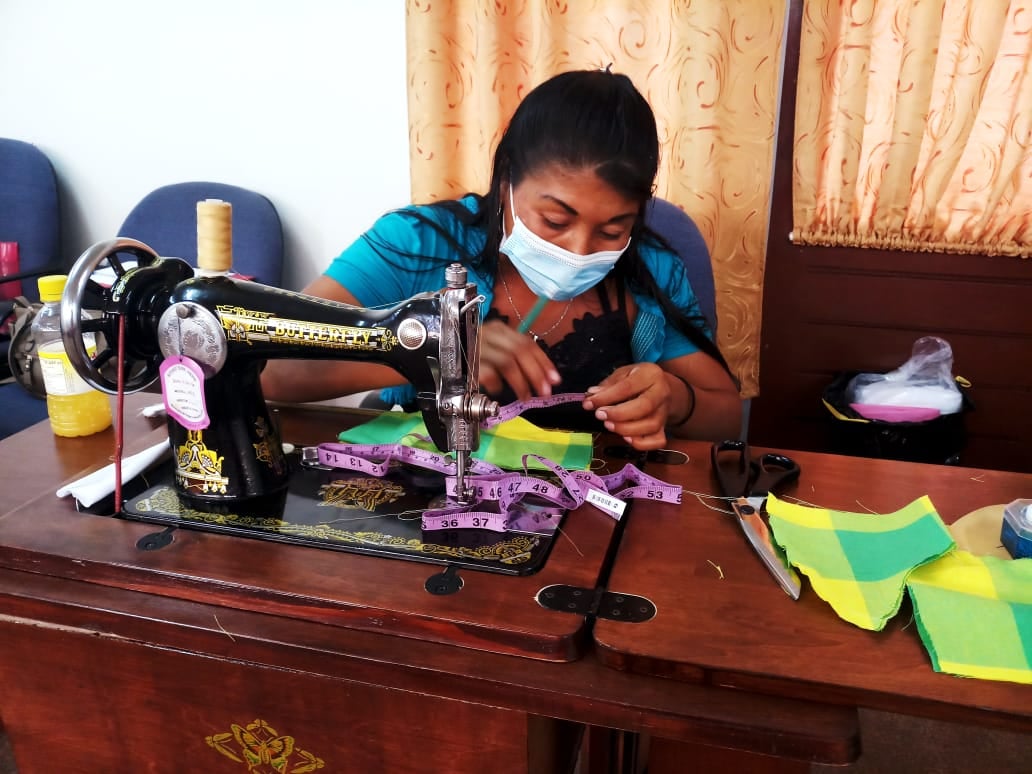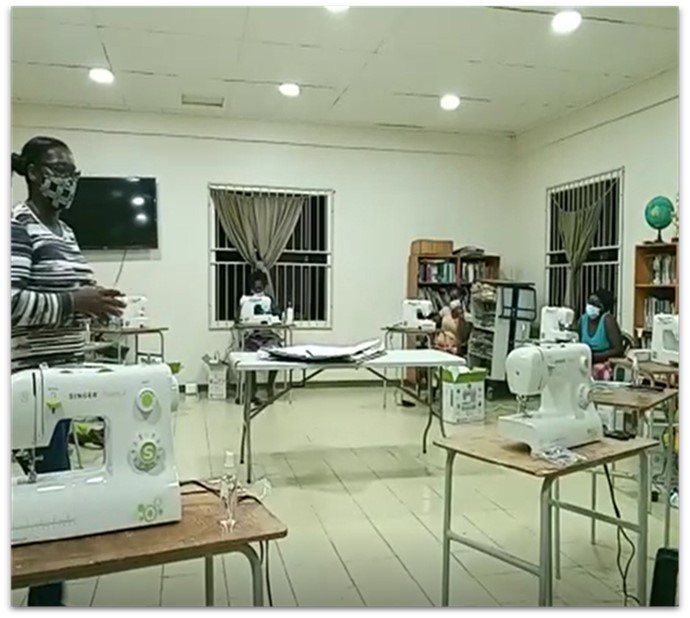Photo 1: The participants in the training received the equipment needed to begin their entrepreneurship. Photo Credit: FB page of Directorate Sustainable Development Indigenous People of the Ministry of Regional Development and Sports -Copyright @ 2022 https://www.facebook.com/DDOI.RO/posts/427867259001887
In 2021, the UNDP Country Office in Suriname , with the support of the UNDP Crisis Bureau in New York and the UNDP Regional Hub in Panama, and in partnership with the Association of Indigenous Leaders in Suriname (VIDS) conducted a COVID-19 Rapid Digital Socioeconomic Impact Assessment[1] among 300 Indigenous Households.
The survey found that the majority of Indigenous Peoples preferred to receive some form of in-kind assistance compared to cash-based assistance to help in recovery from the impacts of the pandemic. The two top priorities identified were food security and improved public health particularly the supply of materials to implement improved safety measures. UNDP has responded by supporting both Indigenous and Tribal communities with measures to improve food security and also to support women in creating cloth face masks as a key COVID-19 preventive measure and a way of generating income. This support is through a dedicated initiative entitled “Mitigating the Impact of COVID-19 on Indigenous and Tribal People in Suriname” which also includes support for improved food security and public awareness programmes.
Photo 2: Mrs. Orgine Renfrum, Administrative Assistant of UNDP Suriname (left) handing over sewing machines, threads, textiles and other materials to the Deputy Director Ministry of Regional Development and Sport, Department of Indigenous Affairs, Mrs. Anna Lachman-Johannis (right) Photo credit: UNDP Suriname Copyright @ 2021
UNDP provided sewing machines, sewing equipment and textiles for 31 communities and then in collaboration with the Ministry of Regional Development and Sports (Min ROS), the Association of Indigenous Village Heads in Suriname (VIDS) , and KAMPOS- Organization for the six maroon tribes (Kwinti, Aluku, Matawai, Paamaka, Okanasi and Saamaka)-, implemented hands-on training programme for women from Indigenous and Tribal villages in the making of cloth face masks. So far participants from the following villages have received training, material and equipment: Kwamalasamoetoe, Pelelu Tepu, Palumeu, Apetina and Kawemhakan, (South Suriname), Alfonsdorp, Christiaankondre, Langamankondre (Marowijne), Donderskamp, Corneliskondre, Kalebaskreek (Wayambo), Tapoeripa, Post Utrecht(Nickerie) of the indigenous communities, and the villages Pikin Pada, Foetoenakaba, Pikin Slee, Langoe/Kajana, Semoisie, Goejaba (Upper Suriname Region), Bronsweg, Klaaskreek ( Brokondondo), Poesoegroenoe, Bethel, Pauwdoewa, Pijetie, Soekibaka, and Tevreden (Matawai), of the tribal communities.
Sabrina Neni & Komeu Ajamaka, participants of the training said that they are pleased with the training and expressed their gratitude to the organizations for the acquired equipment :
Training programme for women from Indigenous and Tribal villages in the making of cloth face masks
This training is part of the efforts to contribute to the mitigation of the impacts of COVID-19 on the Indigenous and Tribal Peoples which aims, among other things, to develop skills, improve livelihoods and stimulate resilience, with a special focus on developing opportunities for women. The initiative also contributes to Agenda 2030 and the Sustainable Development Goals 1 (Poverty Reduction); 3 (Improved Health) and 5 (Gender Equality).
Photo 3: Participants of tribal communities in the training at Atjoni. Photo Credit: KAMPOS. ©2022
---------
[1] Rapid Digital Socio-Economic Impact Assessment (RD-SEIA) of the COVID-19 Pandemic on the Indigenous Households in Suriname, Copyright @ 2021 United Nations Development Programme Suriname https://www.sr.undp.org/content/suriname/en/home/library/RD-SEIA-REPORT.html

 Locations
Locations




